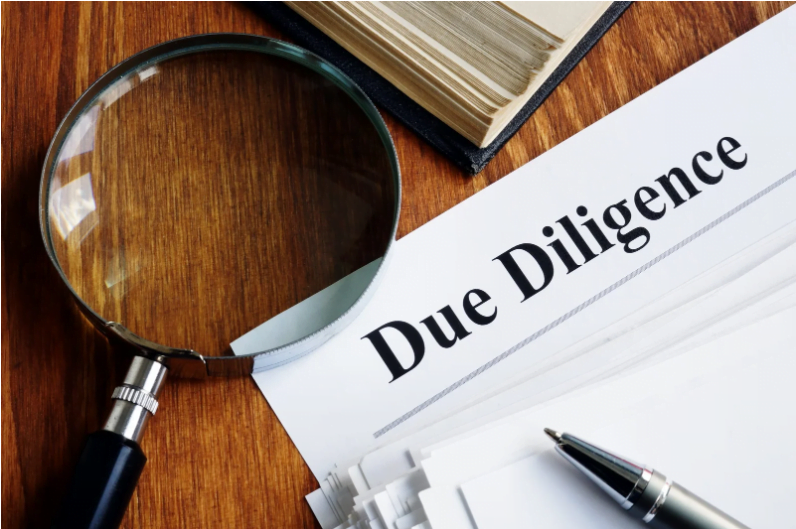When planning to buy a commercial property, whether as an investment or for your business, conducting due diligence is crucial. It is not just a formal part of your negotiations but a key element in ensuring the success of the transaction.
Due diligence involves researching and analyzing the property to minimize risks and uncertainties. This process is your “homework”—a way to confirm important details about the property you’re planning to purchase.
What is the Due Diligence Period?
The due diligence period is the timeframe in which a buyer can inspect, examine, and test all areas of the property. This period allows the buyer to gather information and determine whether the property meets their expectations.
When Does the Due Diligence Period Start?
The due diligence period can start before or after signing the purchase and sale contract. However, if you start it before signing, the seller may limit the information provided and often requires a confidentiality agreement. Typically, the due diligence period for commercial real estate lasts around 30 days. In some cases, it can extend up to 60 days, provided both parties agree to the extension.
Key Areas of Focus During Due Diligence
Due diligence in commercial real estate can be broken down into three main areas: physical, financial, and legal. Each of these areas is important and should be carefully analyzed.
1. Physical
The physical condition of the property is one of the most critical aspects to assess. It directly impacts the property’s long-term value and can be costly to correct if overlooked.
By conducting a thorough inspection, you can determine if the property has been well-maintained. This insight can help you negotiate a better price or, if necessary, decide to back out of the transaction.
Hiring a professional inspection company that specializes in commercial property assessments is highly recommended. They should cover the following areas:
- Building and property condition assessments
- Risk assessments
- Capital expenditure forecasts
- Facilities management reviews
- Property management KPIs
- Replacement cost estimates
2. Financial
Financial due diligence focuses on investigating the property’s cash flow, ensuring that income and expenses match the seller’s representations. This step is essential in determining if the property’s rent roll is sustainable and if the investment is financially sound.
To mitigate risks, conduct a comprehensive review of the property’s financials before closing the deal. Do not rely solely on the seller’s books and records. It is your responsibility to verify every dollar coming in and going out.
This process includes audits such as lease audits, rent roll analysis, and market comparisons. Hiring a qualified accountant with commercial real estate experience is advisable. They will play a critical role in ensuring your financial security during the transaction and in future deals.
3. Legal
Legal due diligence covers the various regulations and legalities that govern the property. This includes:
- Title examination
- Survey reports
- Existing permits
- Liens and tax issues
Without proper legal due diligence, you may encounter deal-breaking problems. For instance, title defects, improper land use, or environmental issues can significantly impact your investment. Therefore, hiring a real estate attorney, along with a title insurance company and a CRE broker, is essential. They will work together to identify and mitigate any legal risks before you sign the purchase and sale agreement.
Conclusion: Due Diligence is Non-Negotiable
Due diligence is a necessary step when purchasing any commercial property. A thorough investigation of physical, financial, and legal aspects helps avoid costly mistakes down the road.
If you fail to conduct due diligence and let the period expire, there is no turning back if discrepancies arise later. Your deposit money becomes non-refundable, and you may be forced to either proceed with the transaction or lose your deposit if you withdraw from the deal. This is why due diligence is non-negotiable in any real estate investment involving millions of dollars.
Need assistance with your 1031 Exchange or DST? We’ve got you covered!
We’ve prepared a comprehensive, free e-book designed to guide you in achieving your long-term business goals or acquiring that dream property you’ve been eyeing.
Meet The LeveragedCRE Investment Team
Phill Tomlinson and Eric Butler are seasoned commercial real estate brokers with over 44 years of combined experience. They lead the LeveragedCRE Investment Team at Commercial Properties, Inc. (CPI) in Scottsdale, Arizona, specializing in investment sales and tenant/landlord representation across the Phoenix and Scottsdale submarkets.
The team leverages their extensive knowledge and expertise to help investors and property owners maximize their returns and navigate complex real estate transactions with confidence.
Stay informed with the latest in Commercial Real Estate strategies designed to enhance your income property investment results by bookmarking www.leveragedcre.com. Let us help you stay ahead in the market!


